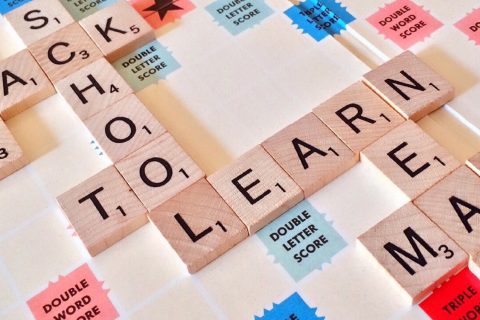Modern Arabic Language and Culture (Minor, Cert)
Why study Modern Arabic?
The Minor and the Certificate in Modern Arabic Language and Culture programs aim to provide a level of language competency — speaking, understanding, reading and writing — in Modern Standard Arabic. In addition, through the inclusion of courses in culture, literature and other related topics offered by Classics, Modern Languages and Linguistics and other departments (History, Religion and Political Science), the programs provide a broad overview of Arabic culture and civilization.
Program structure
Program options
- Minor in Modern Arabic Language and Culture (24 credits)
- Certificate in Modern Arabic Language and Culture (30 credits)
Courses
Exchange programs
Concordia International, in collaboration with the various faculties and the School of Graduate Studies, administers student exchange and internships with Concordia's partner universities and other institutions of higher learning around the world. This exchange enhances relationships between the people and cultures of different countries and promotes international education.
Participating students remain registered at Concordia University and spend from one term to one academic year taking courses, doing research, or participating in an internship program. For complete details, please see the Undergraduate Calendar.
Exchange programs can take several forms, including:
United States students: A U.S. Federal Student Aid-eligible version of this program is offered. This version meets all U.S. regulations (such as no co-operative education or e-courses) for eligible programs.
Admission criteria
Minimum cut-off averages and course requirements
- Quebec CEGEP: 20
- High School: C+
- ACT or SAT is NOT required
- Canadian curricula course requirements
- Accepted international qualifications
- International Baccalaureate (IB) diploma: 26
- International Baccalaureate Career-related Programme (CP): 4.3/7
- Baccalauréat français: 11
- British system of education (GCE):
- A-levels: At least two A-level exams CD or
- AS-levels: At least 4 AS-level exams with equivalent results or
- BTEC: Level 3 Diploma or Extended Diploma in a related subject area with equivalent results
- Additional information for British System of Education (GCE) applicants
- University Transfers (internal/external): C
Native speakers or applicants with advanced language skills are not eligible for admission.
Minimum cut-off averages should be used as indicators. The cut-off data may change depending on the applicant pool. Applicants who meet the stated minimum requirements are not guaranteed admission to these programs.
Application deadlines

FALL ENTRY (September)
Deadline: March 1
U.S. and international applicants: Apply no later than February 1 to allow time for immigration document processing. However, applying earlier is strongly recommended. Immigration processing times vary by country and delays could prevent you from starting your studies on time.

WINTER ENTRY (January)
Deadline: November 1
U.S. and international applicants: Apply no later than August 1 to allow time for immigration document processing. However, applying earlier is strongly recommended. Immigration processing times vary by country and delays could prevent you from starting your studies on time.
We reserve the right to close admission to a program at any time after the official deadline without prior notice.
After your degree
Thanks to Concordia's emphasis on taking an interdisciplinary approach to your field of study, you'll graduate with a depth of knowledge informed by an understanding of how your subject connects to the wider world. You'll be ideally positioned to succeed in a professional role that demands rigorous analytical thinking, sharp communication skills and the ability to approach problem-solving from multiple dimensions.
Student stories

Scarlet Guy
Bachelor of Arts Honours History: Public History
Find out how Scarlet Guy discovers a world of interdisciplinary learning and community support in the Faculty of Arts and Science.
Other programs of interest

Investigate the mysteries of the past. Historians are detectives, picking up a loose thread in the social fabric and unraveling it to weave a new narrative through time
Department
Faculty

Linguistics is the scientific study of the human language faculty. In this field, you will treat language as a scientist, investigate it as a phenomenon, and study its structure, theory and history.
Department
Department of Classics, Modern Languages and Linguistics
Faculty

Political science teaches you how the world works. As one of Concordia’s most popular degree choices, you will meet the world up close: in class, in action and in person.
Department
Department of Political Science
Faculty

When you study religious traditions and the impact they have on the world, you acquire an informed appreciation of the beliefs and values of other cultures
Department
Department of Religions and Cultures
Faculty

